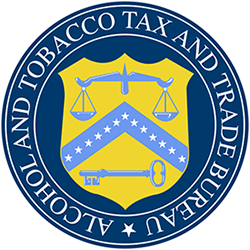
When Terry Lozoff first read the recently announced social media guidelines assembled by the Alcohol and Tobacco Tax and Trade Bureau (TTB), a few particular bits struck him. Lozoff, the co-founder of the social experiential marketing company Antler Agency, wondered how the TTB plans to monitor the entirety of social media interaction between breweries, wineries and distilleries and consumers. That’s a lot of Internet.
“They can oversee advertising,” Lozoff said. “But can they really oversee millions of social media conversations?”
But he was even more perplexed by the TTB’s mention of Friendster alongside Facebook, LinkedIn and Myspace. After all, Friendster, once the apple of Google’s investing eye, has been defunct as a social media site – – at least in the U.S. — since about 2009. The domain is now a gaming site based in Malaysia.
“I think it just kind of shows that [the TTB doesn’t] fully understand what the social media landscape is,” said Lozoff, who has led marketing campaigns for MillerCoors and Magners Irish Cider, among others.

The guidelines will attempt to enforce regulations, such as the legal drinking age, for companies with a clear intent to advertise alcoholic products with social media. The guidelines are intended to prevent consumer deception, prohibit the use of misleading statements and produce consumers with adequate information on the identity and quality of the advertised product, according to the TTB. These companies will be required to post regulatory terms in a primary location, such as the “About Us” section on Facebook or the profile page on Twitter.
Erin Weston, who runs social media and public relations for Flying Dog Brewery, said that she talked with the Brewers Association about the TTB’s guidelines. She said that she is still reviewing the guidelines, but thinks that they seem to be a reinforcement of what’s already been known.
Boston Beer Co. has established its own guidelines, which is roughly based off those assembled by the Beer Institute (BI). The BI’s guidelines state that beer advertising and marketing shouldn’t portray, encourage or condone drunk driving, that they can show beer being consumed, but not rapidly or excessively, and that they shouldn’t portray illegal activity, to name just a few points.
For his part, Lozoff disagrees with more than just the puzzling Friendster mention. He dislikes the TTB’s stance that all links from third-party sources should also follow the social media guidelines. He also believes that it’s wrong to consider social media as a form of advertising. Rather, Lozoff believes that social media encourages conversation and interaction tailored toward the consumer, while traditional advertising projects a message that offers no direct reply.
“Social media at the heart of it is not advertising,” he said.
Despite his objections to the guidelines, Lozoff said that he doesn’t think there’s much to worry about for those engaging in social media efforts on behalf of craft breweries. He does recommend that breweries read the guidelines, but he said that the new directives will probably not have a significant effect on day-to-day operations.
